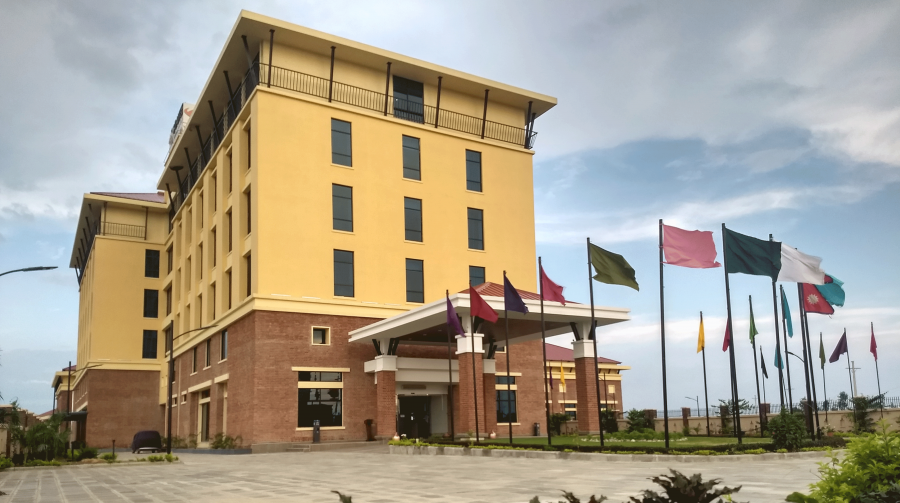Money
Government, hotel leaders at odds over employees future
Hotels have decided to send employees home and will be paying them partially amid the pandemic.
Sangam Prasain
While Tourism Minister Yogesh Bhattarai on Thursday warned leaders of the hospitality industry not to lay off workers under the pretext of crisis, the apex body of hotels said the intent has been misinterpreted as employees will continue to get paid.
But they will not be paid fully, the Hotel Association of Nepal said.
"We have asked employees to stay at home. That doesn't mean it's a layoff," said Binayak Shah, senior vice-president of the Hotel Association Nepal. "We have decided to close all hotels and resorts for six months as we don't expect tourists to visit Nepal for at least another year."
And in spite of closing down hotels, we have decided to pay only 12.5 percent of the basic salaries to the employees, he said.
The basic salary for each employee set by the government is a little over Rs13,000. "In addition, employees will also get the service charges that have accumulated, Shah said.
"The government should contribute through its planned job retention fund," he said. "But if the situation does not improve after six months, we will be forced to lay off workers."
A government committee formed to ascertain the losses in the tourism industry has recommended setting up a retention fund worth Rs20 billion. It has recommended providing 12.5 percent of salaries to workers in the tourism industry through the fund.
On Thursday, minister Bhattarai told journalists that the government would support tourism workers and warned hospitality industry leaders not to lay them off. "We are also bringing some packages to the workers as the industry is one of the hardest-hit sectors."
But Shah said that the government is not hearing the grievances of the industry despite our repeated plea. "We haven't been invited for any discussion on how to tackle the issue."
Pashupati Murarka, former president of Federation of Nepalese Chambers of Commerce and Industry, said that the hospitality sector has been hit the most by Covid-19 with income coming to zero and in this situation, the government should immediately address this sector. "If the lockdown prolongs, all other sectors will also be paralyzed. The government should open up the industrial sector gradually," he said. "But the tourism industry faces a bleak immediate future and its recovery will also take some time."
Investment in the hospitality sector is big and accordingly, losses are also expected to be big. "This industry needs an immediate response from the government so that hotels do not go bankrupt and workers become jobless," said Murarka.
Officials said more than 3,000 hotels will send their staff home because they can't keep paying their full salaries with no revenue coming in due to the lockdown.
But the trade unions are not happy with the association's decision.
Madhav Pandey, president of the All Nepal Hotel Casino and Restaurant Workers’ Union, recently told the Post that the association's decision would leave 300,000 workers in the hotel business stranded without any support.
"In addition, it will impact another 700,000 workers in non-member hotels and restaurants," he said. "We are surprised that the hotels have given up in just one and a half months, and they want the workers to die without any income."
There is a difference between automatic closure of hotels due to the crisis and closing hotels lawfully. Lawful closure means hoteliers can significantly slash employee salaries and apply for payment from the social security fund to which all employees contribute 1 percent of their salaries.
According to Nepal Rastra Bank, banks and financial institutions had a loan exposure of Rs138.68 billion in the hotel and restaurant sectors as of the first seven months of the current fiscal year.
According to Hotel Association Nepal, 95 percent of its 3,000 member hotels earned exactly zilch in March and April.
“We are also worried about the recovery of the loans,” Bhuvan Dahal, president of the Nepal Bankers’ Association, a grouping of the chief executive officers of commercial banks, told the Post in a recent interview.




 9.7°C Kathmandu
9.7°C Kathmandu















